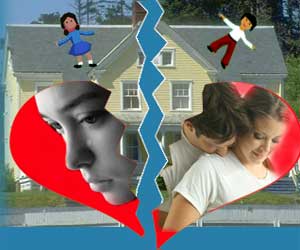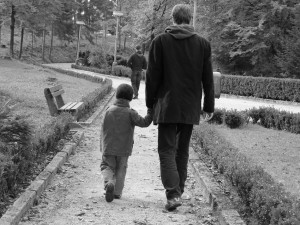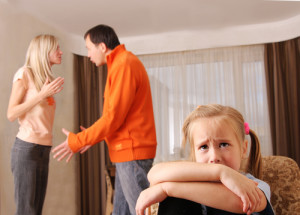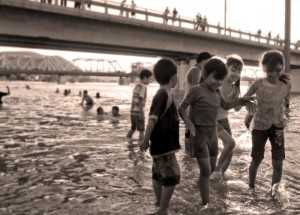Children, Infidelity, & Divorce
‘The children are too young to understand what’s happening’
If you have had an affair, or your partner, you may believe the above statement to be true. However, as a psychologist, and long time infidelity recovery researcher and counselor, all of the evidence points to the contrary.
When an affair is discovered, both parents are so anxious, angry and even traumatised that they have limited resources for dealing with more stress from their children, who are likely to be more demanding than usual. Of course, the last thing people involved with the thrill of having an affair are likely to think about is how their actions will play with the next generation.
People don’t just betray their partners when they shatter family life with a serious affair — the sad truth is that their children grow up believing their parents have been unfaithful to them, too.
There is substantial research on the short and long-term effects of divorce if it isn’t handled well. For children, these include low self-esteem, a sense of being abandoned, poor performance at school, anti-social behaviour and the heartbreak of simply missing the absent parent.
Separations provoked by an affair tend to be the most acrimonious. Each parent shoves the blame for the split on to the other, sometimes forcing the children to take sides by supporting his or her version of events. By tearing a child’s loyalty in two, parents can inflict profound damage. To make matters worse, research has shown that around half of all fathers lose contact with their offspring within two years of the separation.
An acrimonious divorce, according to research, doesn’t simply hurt children at the time; it can also store up problems for their future. So, even if their parents separated when they were small, they won’t necessarily suffer the full effects until they become adults themselves. It can contribute to their own marital problems — including affairs of their own — or hamper their ability to form lasting relationships.
How to reduce the impact on children?
All the research shows that several specific things need to happen to help with a faster recovery.
- First, if there are marital arguments, parents must never descend into aggression and character assassination.
Instead, children need to see that their father and mother can argue their corner, respect the other’s right to have another opinion, talk about the impact of their behaviour and resolve to work on their differences. - Second, if a couple separate, they need to present a united front when dealing with the children. So, there should be no arguments about access in front of them and both parents should be involved in school activities and their lives.
- Third, any stress, humiliation and rage must be unloaded far away from the children. It may take Herculean strength to avoid revealing your most negative feelings, but it’s essential. Use a family mediator to limit the acrimony and sort out your separation more civilly.
- Fourth, it’s important not to damage children’s trust. This means telling the truth about what’s going on by giving them information appropriate to their age — and answering direct questions. This will reassure them the infidelity wasn’t their fault and that they can always ask more questions when they’re worried.
Yes, affairs happen. But if we’re grown-up enough to have children, we owe it to them to deal with the fallout in a grown-up fashion. That way, we can avoid handing problems to the next generation — problems that can strike different age groups in diverse but equally damaging ways . . .
The Long Term Effect of Infidelity On Children by Age Group
Under 3
Early harm: A young child will respond to the increased tension at home by crying
When a parent is absorbed by an affair, no amount of pretence can disguise the fact they have less emotional energy for their children. At the same time, there are rows and tensions at home.
Sensing their parents’ withdrawal, babies and small children feel anxious and resort to their only weapon: crying. Their frequent tears are a desperate plea for more eye contact, more cuddling, more attention. However, their parents are likely to be so wrapped up in their own emotions they find it difficult to respond.
For children under three, this can be catastrophic. At this stage, it’s crucial for them to be totally enveloped by passionate parental adoration. If they miss out, they become anxious — and years later, when they become adults, they may have problems with intimacy.

Aged 3 to 5
“This is the age group who is at least risk of long term negative effects,” says Dr. Savannah Ellis, from the Las Vegas Infidelity Recovery Institute.
Similar to studies of children who have come from adopted families, they have found if the baby had a secure relationship with the mother in the first two years, the child was more likely to adjust to difficult situations from years 3 onwards. Early bonding is paramount (see attachment styles.)
Aged 5 to 10
Over the age of five, children are more likely to think they have caused their parents’ difficulties themselves. Their greatest fear, when they hear arguments and sense tension at home, is that their parents will separate. As a consequence, they often have nightmares. Before going to sleep, they can also experience powerful flashbacks of Mummy and Daddy fighting. Many become over-clingy.
 Behavioural problems at school are common, as well as other regressive behaviour, such as bed-wetting or thumb-sucking.
Behavioural problems at school are common, as well as other regressive behaviour, such as bed-wetting or thumb-sucking.
To young children, separation makes no sense. Without a clear understanding of why it’s happened, they find their world has been thrown into chaos.
It’s not uncommon for one parent to be involved with the father or mother of another pupil at the child’s primary school. So, once the affair is out in the open, it can cause profound disruption to a child’s social world. Imagine what it must feel like suddenly to see your own father picking up someone else’s children from your school or giving them presents. I’ve heard examples of both.
AGED 11-18
During the first rumblings of adolescence, things start to get considerably more complicated. For a start, teenagers are more likely to discover an infidelity — not least because they’re so adept at finding incriminating evidence on mobile phones and computers. And when they do suspect or discover something, they often don’t know where to turn.
In adolescence, children are developing their own sense of identity and fumbling their way towards first love.
They can often be idealistic, highly moral and sensitive to hypocrisy. So when they find out that one parent has been unfaithful, they’re quick to see the betrayer as a liar and a cheat.
Discovering: An adolescent child is more likely to find evidence of an infidelity, especially as this generation is so at home with technology and social media. This will hurt the parent, but it’s also harmful to the child.
In order to grow up well, adolescents desperately need their parents to be role models — particularly when it comes to demonstrating the values of integrity, honesty and sensitivity towards loved ones. They need a stable family from which they can gradually start to pull away in order to forge their own separate lives. The discovery of an affair explodes all that.
To make matters worse, some teenagers are forced to bear the weight of family secrets by acting as go-betweens.
Both parents may use their child as a confidant as they struggle to construct new lives apart.
Many adolescents get very angry, usually with the parent with whom they feel most secure — who is also probably the one being betrayed and least able to cope. They can get into more trouble at school, have fights, start fires or play truant. Some become depressed, get sick, stop eating or turn to drink or drugs.
Meanwhile, given that the idea of their parents having sex at all is pretty disturbing, the discovery that one of their parents is having sex outside the marriage feels like a violation. Consequently, some teenagers become promiscuous at an early age, while others opt to shut down sexually altogether. A parent’s affair also causes problems in the community or at school, because teenagers are highly sensitive about how they are viewed.
Bigger kids, bigger problems: Even older teens and young adults can be scarred for life and display destructive behaviour
When the straying partner is the father, the child’s sense of betrayal may be mitigated by the general consensus that it’s still considered more excusable for a man to have an affair.
But if a mother has been having an affair, her children are likely to encounter a new torture: hearing her labelled — by schoolchildren who echo their parents’ remarks — as a ‘slag’ or a ‘whore’.
AGED 18-21
Even when a child has left home or gone to university, the discovery of a parent’s infidelity can have far-reaching consequences.
Sociologist Jean Duncombe says: ‘Some parents seem to think that once their children have gone to university, it doesn’t matter any more because they’re adults. ‘But they’re still children within that context. So they’re absolutely devastated. It’s the lies, I think, that cause the deepest damage.’
For some, the disruption to their sense of security is acute enough to prevent them sustaining relationships at all.
But one of the more common reactions — which is rising — is to become rigidly condemnatory of any sexual betrayal.
This moral certainty sets an impossibly high standard for young people in their love lives. Indeed, people with zero tolerance for infidelity are likely to be less able to deal with the consequences of marital difficulties and more likely to end partnerships that could be saved or even improved.
Video – Effects of divorce on teens-teen issue
- By Addie Pass – “this is a video we made for our film class. it is our teen issue video on the effect of divorce on teens.“
- Watching time: 4 mins
Video – Voice of the Child of Divorce
- A “Dear Mom & Dad” letter written by a child of divorce
- Watching time: 3 mins
